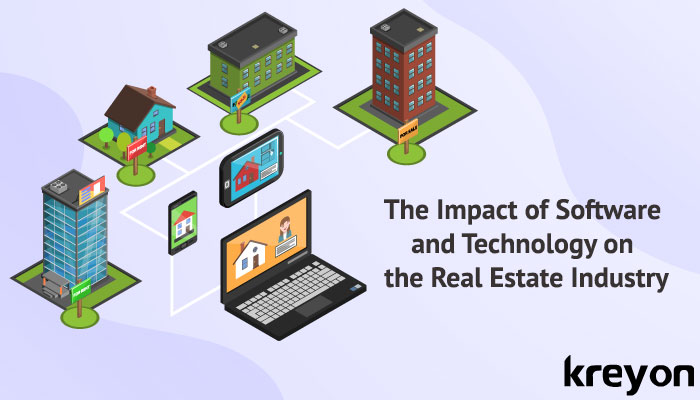
How Software Development Affects the Real Estate Market
In recent years, the real estate industry has undergone a transformation driven by advancements in technology and software development. From property listing platforms to virtual tours and blockchain-based transactions, software solutions have reshaped the way real estate professionals operate and how buyers and sellers interact in the market. In this article, we will explore the significant impact of software development on the real estate market, the key technologies driving this transformation, and the benefits it brings to industry stakeholders.
- Property Listing and Search Platforms
One of the most significant impacts of software development on the real estate market is the emergence of property listing and search platforms. These online platforms, such as Zillow, Trulia, and Realtor.com, provide comprehensive databases of available properties for buyers and renters to browse. With advanced search filters and geolocation features, potential buyers can easily find properties that meet their specific criteria, streamlining the property search process.
- Virtual Tours and 3D Visualization
Software development has enabled the creation of virtual tours and 3D visualization tools, revolutionizing the way buyers view properties remotely. Real estate agents can now provide virtual tours that offer a lifelike experience of walking through a property, allowing buyers to explore every room and detail without physically visiting the location. This technology has proven especially valuable during the COVID-19 pandemic when in-person visits were limited.
- Real Estate CRM and Management Systems
Customer Relationship Management (CRM) and property management systems have become essential tools for real estate professionals. These software solutions enable agents and agencies to manage client interactions, track leads, and monitor property portfolios efficiently. CRM systems streamline communication with clients, improve lead conversion rates, and enhance customer satisfaction, ultimately boosting business productivity and growth.
- Blockchain and Smart Contracts
Blockchain technology is making waves in the real estate market by introducing secure and transparent transactions through smart contracts. Smart contracts are self-executing contracts with terms directly written into code, removing the need for intermediaries like banks and escrow services. These contracts provide enhanced security, reduced transaction costs, and faster closing times, benefiting both buyers and sellers.
- Real Estate Data Analytics
Software development has empowered real estate professionals with data analytics tools to gain valuable insights into market trends, property values, and buyer preferences. Data analytics platforms can process vast amounts of data from multiple sources, helping real estate agents make informed decisions, identify investment opportunities, and understand the market’s dynamics.
- AI and Machine Learning Applications
Artificial Intelligence (AI) and machine learning technologies are increasingly being applied in the real estate sector to automate tasks and enhance user experiences. AI-powered chatbots can handle customer queries and provide real-time assistance, while machine learning algorithms analyze vast datasets to predict property prices and market trends https://111minutes.com/industries/real-estate.
- Online Mortgage and Financing Tools
Software development has also streamlined the mortgage and financing processes for property buyers. Online mortgage calculators and financing tools help buyers assess their affordability, compare mortgage rates, and apply for loans online, simplifying the financing process and reducing paperwork.
- Property Management Apps
For property owners and landlords, property management apps offer efficient ways to manage rental properties, lease agreements, and maintenance requests. These apps enable landlords to communicate with tenants, collect rent online, and schedule property maintenance tasks, ensuring smooth and organized property management.
- Real Estate Crowdfunding Platforms
Software development has facilitated the rise of real estate crowdfunding platforms, allowing investors to pool funds to invest in properties collectively. These platforms democratize real estate investments, providing opportunities for smaller investors to participate in lucrative real estate projects.
- Enhanced Marketing and Digital Advertising
Software development has transformed marketing strategies in the real estate industry. Digital advertising, social media marketing, and email campaigns allow real estate agents to reach a broader audience and target specific demographics effectively.
The influence of software development on the real estate market cannot be understated. From property listing platforms and virtual tours to blockchain-based transactions and AI-powered chatbots, technology has revolutionized how the industry operates. The digital transformation in real estate has streamlined processes, improved customer experiences, and expanded investment opportunities.
As software development continues to advance, the real estate market is poised for further disruption and innovation. Embracing technology and staying up-to-date with the latest software solutions will be crucial for real estate professionals and businesses seeking to thrive in this dynamic and ever-evolving industry.







